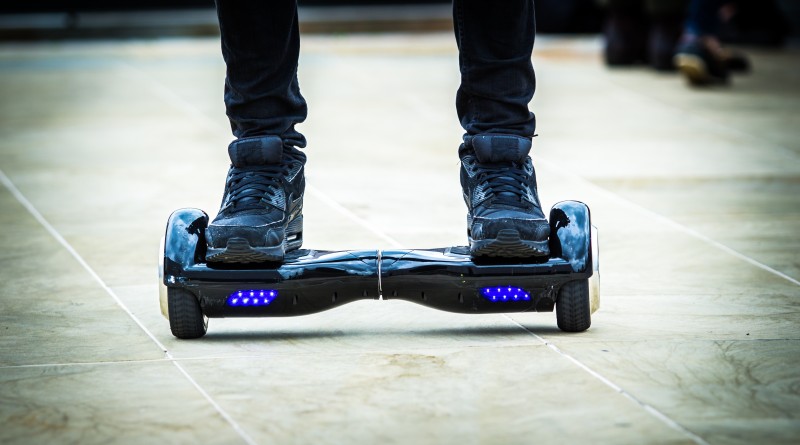UD bans hoverboards amidst fire scare
By: Rachel Cain – News Editor
The University of Dayton recently banned self-balancing scooters, commonly called “hoverboards,” from all campus buildings due to fire safety concerns.
“Our office will continue to monitor news and regulations regarding hoverboards. If these products become safer, we will reevaluate this policy and update the campus at that time,” said Robin Oldfield, executive director of the Office of Environmental Health and Safety/Risk Management, according to an email sent to the student body on Jan. 15. “The safety of our community is our top priority. We appreciate everybody’s cooperation in making the University of Dayton a safer place.”
UD Housing and Residence Life sent an email Jan. 14 informing students hoverboards would be prohibited from residential facilities.
“After reviewing information from these [the Consumer Product Safety Commission and National Fire Protection Association] and other sources, the departments of Housing and Residence Life, Residential Properties and Environmental Health & Safety / Risk Management found that the potential risk of fire caused by these devices warrants their restriction in University of Dayton residential facilities,” the email read. “We are concerned for the safety of our students and believe that having these devices in residence greatly increases the chance of fire.”
Housing and Residence Life directed Flyer News to the Office of Environmental Health and Safety/Risk Management for an interview. After reaching out to that office, Shawn Robinson, Associate Director of Media Relations, wrote in an email to Flyer News that “we don’t have anything to add to [the] email about hoverboards.”
At least 30 other colleges and universities, including American University and George Washington University, have banned these motorized scooters since December 2015, according to USA Today.
Some of these colleges, like UD, issued bans that are open to re-evaluation.
American University has stated that its ban will continue “until further notice,” and Wellesley College has said its ban will remain “until safety standards can be developed and implemented by the manufacturers,” according to the Associated Press.
Ohio State University and Xavier University, however, will allow hoverboards on campus only if the owners can provide a seal stating that their devices meet certain safety standards, the Associated Press reported.
Some fire officials, however, have gone so far as to suggest that all public colleges should ban hoverboards, according to the Associated Press.
Hoverboards, which are two-wheeled motorized scooters, have recently raised concerns across the country regarding fire hazards due to their lithium-ion batteries.
“It looks like there might be overcharging, too many batteries stacked together in ways that lithium-ion batteries are not meant to be stacked,” said Consumer Product Safety Commission chairman Elliot Kaye, The New York Times reported.
Hoverboards have been reported to smoke or catch on fire while in use or charging, according to The New York Times.
On Jan. 12, CPSC posted to Twitter that they were investigating 37 fires in 19 states.
In December, CPSC reported via Twitter that there were “70 ER-treated injuries & counting,” due to hoverboards.
“Some of these injuries have been serious, including concussions, fractures, contusions/abrasions and internal organ injuries,” Kaye said in a statement in December. “CPSC engineers in our National Product Testing and Evaluation Center in Maryland have tested and will continue to test new and damaged boards in search of an answer for why some models caught fire during the charging stage and others caught fire while in use.”
“These are fairly new to the mass market and there isn’t a lot we know about them,” Lorraine Carli, the National Fire Protection Association’s vice president of Outreach and Advocacy said, according to a NFPA news release. “The best advice we can offer is to read all manufacturer’s guidelines — particularly those that apply to charging hover boards — and to follow some additional fire safety guidelines.”
The ban on hoverboards extends beyond college campuses. New York City and the U.K. have banned hoverboards on their streets, according to The Telegraph, and multiple airlines have banned them, according to Forbes.
Photo courtesy of Flickr’s Creative Commons.

